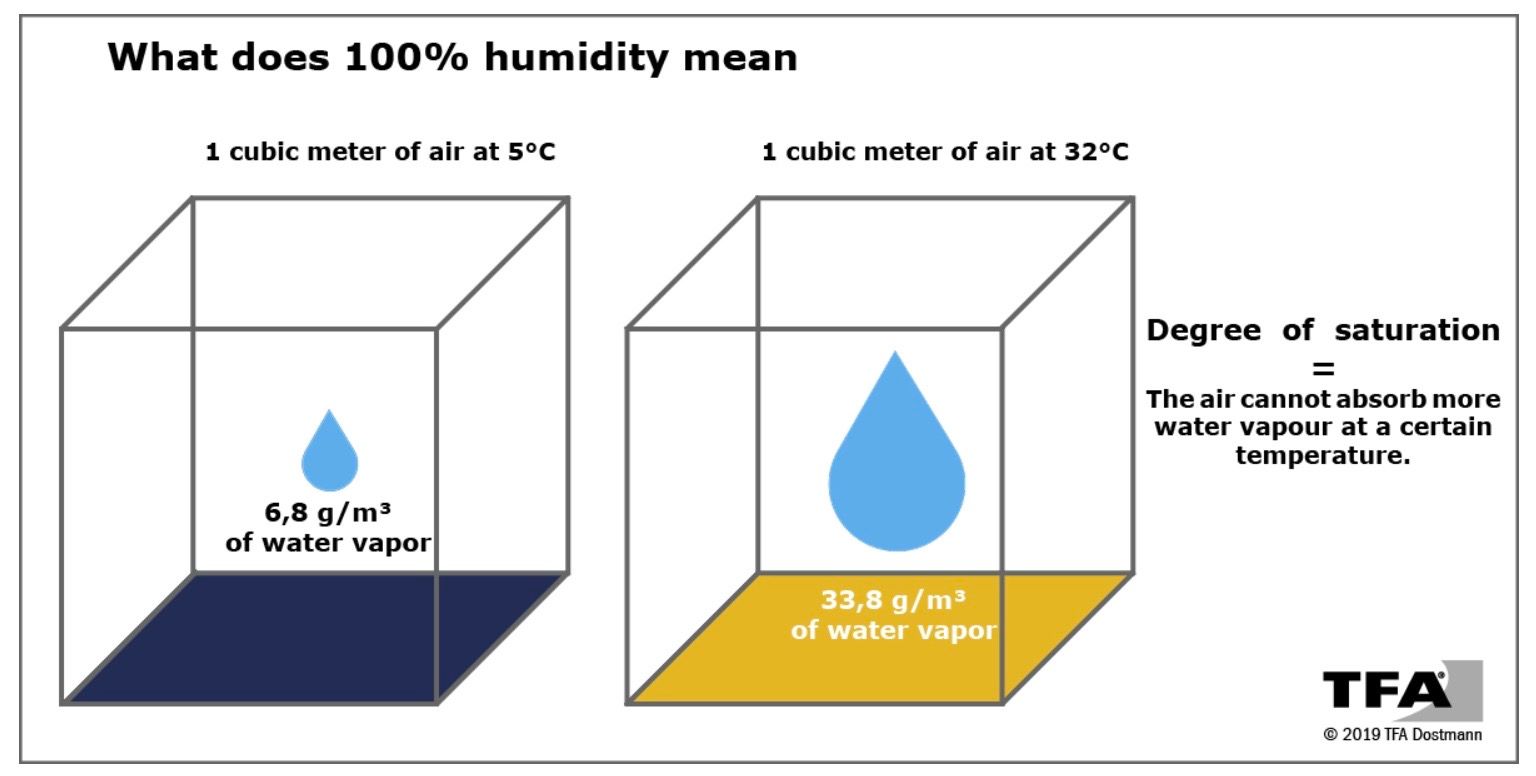Humidity In Middle Tennessee
Living in a Humid Climate: Tips & Insights for Middle Tennessee Residents

Thinking about relocating to Middle Tennessee? One notable aspect of our region is its high humidity, especially in the summer months, which can affect comfort, outdoor activities, and even your home’s energy needs. Our climate is as vibrant and ever-changing as the community itself, full of surprises, seasonal shifts, and lively energy. Whether you're looking for a home that keeps you cool during the humid days or want to understand how our weather influences daily life, I’m here to help. As a local realtor, I can guide you to the perfect property where you can enjoy everything this dynamic region has to offer. Reach out today, let’s find your new home in this beautiful, ever-changing area!
Tennessee's climate is as dynamic as its culture, with hot, humid summers and mild, wetter winters. The summer months, June, July, and August, bring highs up to the mid 90s and plenty of sunshine, especially in June, which has over 10 hours of daylight daily. Humidity peaks in July and August, making the air feel muggy which contributes to the discomfort of summer’s heat and thunderstorms. Winters are milder, with average lows around 31-37°F, but occasional cold(er) snaps and light snow showers are common.
Most of us have heard that the South is hot and humid, but what exactly is humidity and how does it affect us? Humidity is a measure of how much water vapor, the invisible gas form of water, is in the air around us. Think of it as how wet or damp the air feels, even if you can't see any water droplets. When humidity is high, it means the air contains a lot of moisture, making everything feel sticky, clammy, and humid. For example, on a hot summer day, you might notice your skin feels damp and you’re sweating more, but the sweat doesn’t evaporate quickly because the air is already full of water vapor. This can make you feel hotter and more uncomfortable, and sometimes it’s harder to breathe or stay cool. In Tennessee, summer is known for being hot and incredibly humid, especially from June through August. Humidity levels often reach 60-70%, making the air feel damp, sticky, and oppressive. Dew points (a measure of moisture in the air) frequently hover in the 70s, which is considered very muggy. This high moisture content can make you feel much hotter than the actual temperature, cause you to sweat more, and even lead to heat exhaustion if you're not careful. When packing for summer travel in Middle Tennessee, wear loose, light-colored clothing, stay hydrated, and take frequent breaks in shaded or air-conditioned spaces. Always listen for weather warnings, and be aware that thunderstorms are common during the summer months. While many think of cold weather as dry, winter in Middle Tennessee is also humid, though at lower levels, usually closer to 50-60% relative humidity. During winter, the air often feels damp and clammy, especially on days with snow or rain. Cold air can hold moisture too, and when it meets warmer, moist air from the Gulf of Mexico, it can create ice storms or fog. If you're traveling in winter, pack waterproof gear and dress in layers. Keep in mind that indoor heating can dry out the air, so using humidifiers or keeping plants at home can help maintain comfort. Visitors to Middle Tennessee during the summer months should prepare for high humidity that can make the heat feel more intense. In winter, expect damp, sometimes icy conditions that can affect breathing and comfort. Being aware of these humidity patterns will help you stay comfortable and safe during your visits.
High humidity in Middle Tennessee can cause HVAC issues, mold growth, structural damage like warping wood and peeling paint if proper maintenance is not done to your property. There are several simple steps you can take to keep your home cool, dry, and healthy. Maintaining the right indoor humidity level is key. The ideal range is between 30% and 60%, with around 55% being perfect for comfort and health. Use a hygrometer, an inexpensive device available online or at hardware stores, to monitor your indoor humidity levels. If it’s above 60%, you may want to take some action. A well-insulated attic creates a barrier between the hot attic and the cooler-conditioned air below, R12 insulation is very helpful. Single-stage air conditioners may struggle during the “sweating season.” Upgrading to a variable-speed system can double your dehumidification capacity. For a lot of houses, an air conditioner is often all that's needed to keep the humidity where it needs to be. However, if the AC is not enough then investing in a good dehumidifier can make a big difference. These devices actively remove excess moisture from the air. Regularly maintaining your AC, cleaning coils and checking refrigerant, also helps it run efficiently. Another thing that home owners can do is check for leaks around windows, doors, and in the attic which can let in humid outdoor air, making it harder to control indoor moisture. Seal these gaps with weatherstripping or caulking. In bathrooms and kitchens, always use exhaust fans vented outside, leave them running for 15-20 minutes after showers or cooking. Opening windows, when weather allows, during drier parts of the day can help circulate fresh air and reduce indoor moisture. In humid climates, moisture can build up from everyday activities. Keep surfaces dry and use exhaust fans, especially in the bathroom and laundry room. Avoid over-watering houseplants, as they can add to the moisture levels. Check your home for signs of moisture problems, such as condensation on windows, musty odors, or water stains. If you have a dirt crawl space, install a vapor barrier to prevent ground moisture from entering your home. Use a hygrometer to keep track of indoor humidity, and consider professional inspections or improvements if needed. In humid Tennessee, controlling moisture is an ongoing process, regularly draining basements, sealing foundation cracks, and maintaining your HVAC system help keep your home safe and comfortable. By staying proactive and managing moisture levels effectively, you can enjoy Tennessee’s beautiful seasons without the discomfort or damage caused by excess humidity. Managing indoor humidity is essential for maintaining a healthy, comfortable home in Middle Tennessee. Regions at higher elevations experience shorter, cooler, and less humid summers, but overall, Tennessee experiences persistent moisture that affects daily life, health, and home preservation.
In Tennessee’s humid climate, keeping your pantry and food storage areas dry and well-ventilated is essential for maintaining freshness and preventing spoilage. Investing in a dehumidifier or air conditioner can reduce moisture levels effectively, while exhaust fans in kitchens and bathrooms help remove excess humidity. When weather permits, open windows to promote fresh air circulation and lower indoor humidity. Sealing cracks around doors, windows, and walls with weatherstripping or caulk prevents moist air from seeping in. It’s also helpful to keep food off the floor by using elevated shelving or pallets, which helps avoid ground moisture and pests. Regularly cleaning and drying shelves minimizes condensation buildup. Using airtight containers, like glass jars or BPA-free plastic with tight seals, keeps food dry and prevents moisture absorption. For longer storage, vacuum sealing rice, beans, and other dry goods provides extra protection against humidity. Adding moisture absorbers such as silica gel packets, activated charcoal, or even bowls of salt or baking soda inside storage areas can help draw out excess moisture (keep in mind they could be dangerous to pets and people if consumed). Remember to change these regularly for ongoing effectiveness. Monitoring temperature and humidity levels with a hygrometer ensures that storage conditions stay within the ideal 30-50% humidity range and between 50-70°F to slow bacterial growth. If your refrigerator has humidity controls, adjust them based on different produce needs, and keep the appliance clean and dry to prevent moisture buildup. Additionally, always store potentially hazardous foods, like meats and seafood, at or below 41°F, and keep all food covered and properly wrapped to avoid contamination. Use leftovers promptly, ideally within 3-4 days, and rotate your stock to keep everything fresh. By implementing these strategies, you can enjoy safe, fresh food and a healthier home environment despite Tennessee’s high humidity.
Respiratory conditions such as asthma can also worsen due to high humidity. If you have health conditions that may be negatively impacted by high humidity you may want to check with your healthcare provider before traveling to Middle Tennessee. Most of us also know of that high humidity is often not a friend to our hair, hats and ponytail holders often save the day. Tennessee's climate is classified as humid subtropical with high dew points that can leave you drenched even early in the morning or late at night. In hot humid weather, wear lightweight, breathable fabrics like cotton, linen, and moisture-wicking performance materials to stay cool and dry. Loose-fitting clothing and light colors enhance airflow and reflect heat, while moisture-wicking underwear also helps. Avoid heavy, thick fabrics, tight clothing, and pure polyester, as they trap heat and moisture. Staying hydrated is crucial to keep your body comfortable in high humidity. These clothing choices will help you stay cool and comfortable during Tennessee’s humid summer months. To try to prevent your hair from frizzing in humidity, focus on keeping it moisturized and sealed from the outside. Use moisturizing shampoos and conditioners, apply leave-in conditioner, and consider using hair oils or serums. Opt for anti-humidity styling products and consider protective hairstyles like braids or buns. Finally, avoid over-washing and excessive heat styling.
If you're considering a move to Tennessee, understanding the region’s high humidity and seasonal weather fluctuations is key to maintaining a comfortable, healthy home. From managing indoor moisture levels with dehumidifiers, regular HVAC maintenance, and sealed entry points, to storing food properly and preparing for the season’s unpredictable storms, being proactive makes all the difference. Tennessee’s climate might be wild and wonderful, but with the right knowledge and a home suited for these conditions, you can enjoy all four seasons without the discomfort or damage caused by excess humidity. As a local realtor, I’d love to help you find the perfect property, whether that means a home with the right features to manage humidity or a community close to the best outdoor spots. Reach out today, and let’s find your ideal home in this vibrant, ever-changing region.
Murfreesboro Real Estate
Buying and Selling in Murfreesboro
Rutherford County Real Estate
Murfreesboro Realtor
Real Estate Communication
Murfreesboro Real Estate Questions
Murfreesboro Weather
Murfreesboro Humidity
Middle Tennessee Humidity
Moving to Murfreesboro





